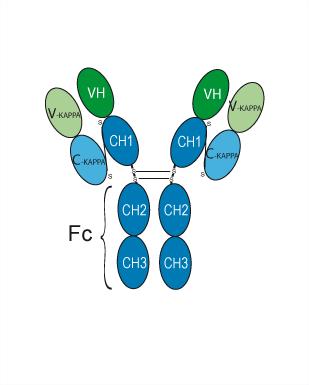| Cas No.: | 189261-10-7 |
| pH value: | Corresponds to reference standard: PASS |
| Non-reduced CE-SDS: | 98.5% |
| SEC-HPLC: | 99.1% |
| Isoelectric Point: | Corresponds to reference standard |
| Bacterial Endotoxins Test: | <1 EU/ml |
| Exogenous Residual DNA: | <1 pg/mg |
| Residual protein A: | <1 ng/mg |
| Biological Activity: | Compared with standard, the range ofbiological activity is 95% |
| Osmolality: | Corresponds to reference standard: PASS |
| Peptide mapping: | Corresponds to reference standard: PASS |
| N-terminal sequence: | Corresponds to reference standard:PASS |
| Description: | Natalizumab is a recombinant, humanized monoclonal antibody, binds to α4β1-integrin and blocks its interaction with vascular cell adhesion molecule-1 (VCAM-1). Natalizumab can be used for the treatment of relapsing remitting multiple sclerosis and Crohn's disease. Natalizumab is also the first targeted therapy which blocks an essential mechanism for lymphocyte entry to the CNS and thus prevents acute demyelinating relapses[1]. |
| In Vivo: | Natalizumab binds rapidly and with high affinity to α4-integrin. Maximal binding (≥80% saturation), measured in vitro on isolated lymphocyte membranes, occurred 24 hours after intravenous (IV) doses of natalizumab 1 mg/kg to 6 mg/kg[1]. |
| In Vitro: | Natalizumab, a recombinant, humanized antibody, binds to α4β1-integrin and blocks its interaction with VCAM-1. As a result, leukocyte migration into brain tissue is inhibited, reducing inflammation and preventing the formation of lesions. Natalizumab may also inhibit ongoing central nervous system (CNS) inflammation, mediated by leukocytes already present in the CNS, by interrupting the interactions between α4-integrin-expressing leukocytes and extracellular matrix proteins such as fibronectin and osteopontin[1]. |
| References: | [1]. Hutchinson M. Natalizumab: A new treatment for relapsing remitting multiple sclerosis. Ther Clin Risk Manag. 2007 Jun;3(2):259-68. |

 DC Chemicals' products qualify for U.S. tariff exemptions. We guarantee no price increases due to customs duties and maintain stable supply, continuing to deliver reliable research solutions to our American clients.
DC Chemicals' products qualify for U.S. tariff exemptions. We guarantee no price increases due to customs duties and maintain stable supply, continuing to deliver reliable research solutions to our American clients.





















